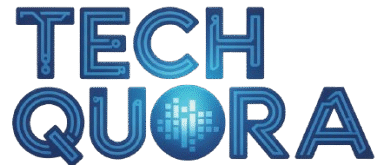In software development, staying on the right side of legal requirements isn’t just smart—it’s essential. The Doge Software Licenses Audit HUD helps teams ensure software license compliance by offering a transparent license tracking interface that scans your code in real time.
Whether you’re navigating open-source license management or overseeing CI/CD pipelines, this tool brings clarity and automation. It lets you identify license types like MIT license or GPL license, enforce policy rules, and prevent common pitfalls. Accessible directly through tools like GitHub and Jenkins, this HUD transforms manual auditing into an intuitive, efficient process so your team can move faster—confidently.
Why Software License Auditing Matters in Modern Development
In today’s fast-paced DevOps landscape, ignoring license compliance isn’t just risky—it can be catastrophic. Security vulnerabilities, legal disputes, and even irreversible brand damage can arise from something as simple as an overlooked dependency. Many open-source license management challenges stem from untracked packages and misunderstood restrictions, such as AGPL license clauses that legally require derivative works to be released under the same terms. In cloud-native architectures and complex microservices ecosystems, the number of dependencies grows exponentially.

Every service may pull in dozens of libraries, each with unique requirements. Without automated compliance checks and real-time license tracking, teams risk releasing software that violates policies, jeopardizes partnerships, and slows down innovation.
Key Features of Doge Software Licenses Audit HUD
- Real-Time Scanning – Instantly detects and identifies software licenses within packages pulled from popular ecosystems like NPM, PyPI, Maven, and Composer. As soon as code or dependencies are added to your project, the tool runs a live scan, flagging potential license conflicts before they become compliance risks. This proactive approach ensures your team can address issues immediately—without slowing down the development pipeline..
- License Compatibility Matrix – Provides a clear, visual overview of how different software licenses interact, instantly highlighting conflicts between permissive licenses (like MIT or Apache) and copyleft licenses (such as GPL or AGPL). This feature helps teams quickly identify combinations that could introduce legal obligations or distribution restrictions, ensuring you avoid costly compliance mistakes before code moves to production.
- Policy Enforcement for Licenses – Enables teams to create custom rules that automatically allow, flag, or block specific license types based on organizational policy. For example, you can permit permissive licenses like MIT or Apache, flag copyleft licenses such as GPL for legal review, and block any proprietary or unknown licenses that could pose legal or compliance risks. These rules are enforced in real-time, ensuring that any restricted license is detected and addressed before it enters your codebase or production environment.
- License Audit Trails – Maintain detailed records for legal compliance in software audits.
- DevOps Integration Tools – Works with Jenkins, CircleCI, GitHub Actions, and security scanners like Snyk and Sonatype.
How Doge Software Licenses Audit HUD Helps Different Teams
- Developers – Avoid using incompatible licenses and get instant IDE alerts.
- Legal Teams – Automate license reviews and generate compliance reports.
- CTOs & DevOps Leaders – Gain visibility into the license landscape across all projects.
Policy Enforcement for Licenses – Enables teams to create custom rules that automatically allow, flag, or block specific license types based on organizational policy. For example, you can permit permissive licenses like MIT or Apache, flag copyleft licenses such as GPL for legal review, and block any proprietary or unknown licenses that could pose legal or compliance risks. These rules are enforced in real-time, ensuring that restricted licenses are detected and addressed before they enter your codebase. This ensures software risk assessment and compliance are part of your build process — not an afterthought.
License Auditing in Cloud-Native Environments
Modern apps rely heavily on containers and microservices, which pull in code from multiple sources. Doge Software Licenses Audit HUD works seamlessly in Kubernetes and Docker environments, enabling CI/CD license monitoring at scale. It’s built for high-velocity teams that need license checks to keep up with frequent deployments.

Implementation Steps for Doge Software Licenses Audit HUD
- Integrate with Source Control – Connect to GitHub, GitLab, or Bitbucket.
- Enable Policy Engine – Define your organization’s acceptable license types.
- Run Initial Scan – Detect and categorize all licenses in your codebase.
- Review Audit Trails – Ensure no high-risk licenses are included.
- Automate in CI/CD – Add compliance checks to Jenkins, CircleCI, or GitHub Actions.
Common Software Licensing Pitfalls and How to Avoid Them
- Using code snippets without verifying the license.
- Ignoring license compatibility matrix conflicts.
- Failing to track updates that change license terms.
- Overlooking security vulnerabilities from licenses with weak maintenance.
Avoid these by enforcing automated compliance checks with Doge HUD.
Example Use Case: From Chaos to Compliance
A US-based SaaS company preparing for acquisition faced investor demands for license audit trails. Using Doge HUD, the CTO:
- Scanned 4,000 dependencies in minutes.
- Identified and replaced two incompatible GPL libraries.
- Generated a compliance report for due diligence.
The result? Acquisition approval with zero licensing red flags.
The Future of Doge Software Licenses Audit HUD
Upcoming enhancements include:
- Machine learning license prediction to forecast risk.
- Slack/Discord alerts for real-time collaboration.
- AI-powered license policy engine for plain-language compliance guidance.
Final Thoughts on Choosing the Right License Audit Tool
Doge Software Licenses Audit HUD is not just a license reporting system — it’s a developer compliance dashboard built for modern, fast-moving software teams.

Whether you’re a startup or an enterprise, this tool can transform your license compliance process from manual chaos into automated clarity.
Frequently Asked Questions (FAQs):
Q1: What is Doge Software Licenses Audit HUD used for?
It scans codebases, detects open-source licenses, and flags potential compatibility or legal issues instantly.
Q2: How does Doge Software Licenses Audit HUD improve compliance?
This reduces manual checks and ensures compliance before software deployment.
Q3: Does it support popular DevOps and CI/CD tools?
Yes, it integrates seamlessly with GitHub, GitLab, Bitbucket, Jenkins, CircleCI, and even GitHub Actions, making it easy to monitor compliance across your CI/CD pipelines.
Q4: Can Doge Software Licenses Audit HUD detect security risks?
Yes, besides license issues, it can also identify security vulnerabilities in dependencies, helping teams mitigate risks early in the development lifecycle.
Q5: Is it suitable for large enterprises as well as startups?
Absolutely, Doge HUD scales to fit your needs.
Q6: Does it support cloud-native environments?
Yes, the tool is fully compatible with cloud-native and containerized environments, allowing license monitoring across microservices and distributed architectures.
Meta Description:
Stay compliant effortlessly with Doge Software Licenses Audit HUD. Real-time scans, DevOps integration, and policy enforcement.

Here’s Muhammad Haseeb, a passionate and results-driven digital professional with 4 years of hands-on experience in SEO. I specialize in improving website visibility, driving organic traffic, and implementing effective off-page and on-page strategies.


